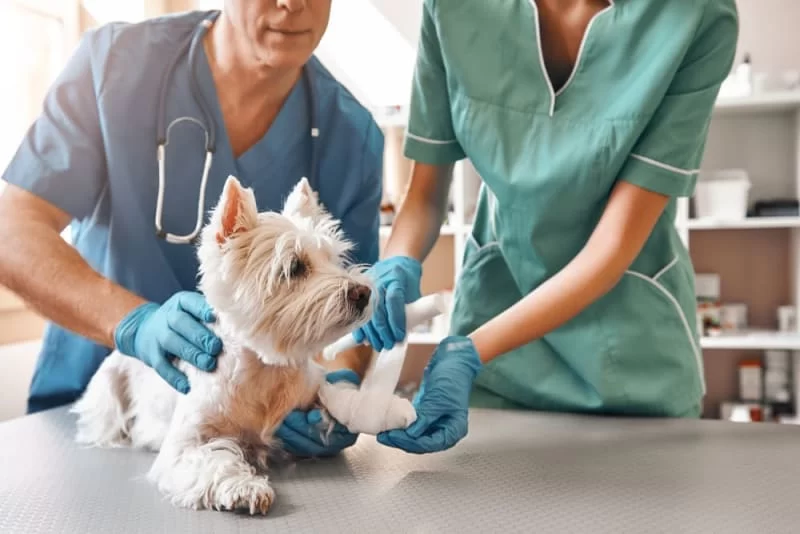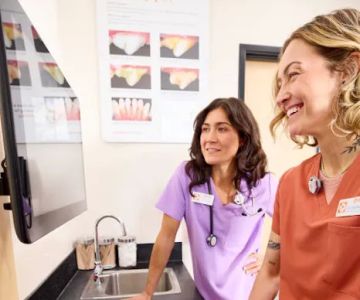- Why Post-Surgery Care Matters
- Creating a Comfortable Recovery Space
- How to Monitor Your Pet's Recovery
- Managing Pain and Medications
- Encouraging Rest and Limiting Activity
- Ensuring Proper Nutrition and Hydration
- When to Contact the Veterinarian
Why Post-Surgery Care Matters
When your pet undergoes surgery, whether it’s a routine procedure or a more serious operation, their recovery phase is crucial. Proper post-surgery care helps minimize the risk of complications and ensures your furry friend heals efficiently. By paying attention to your pet's needs during this time, you can improve their comfort and speed up the recovery process.
Many pet owners often overlook the importance of post-surgery care, but it can make all the difference in your pet’s healing journey. Taking the time to monitor their condition and address their needs will contribute to a smoother recovery and a happier, healthier pet in the long run.
Creating a Comfortable Recovery Space
Your pet will need a quiet, comfortable space to rest and recover after surgery. This area should be away from other pets and distractions. Keep it clean, dry, and well-lit, ensuring it’s easy for your pet to access their bed and food without unnecessary strain. If your pet has had surgery on their legs, make sure the area is free of obstacles that could cause them to stumble or get injured.
One key tip is to set up a designated recovery zone that’s free of high activity. Your pet will need a peaceful environment to rest and regain strength, and being surrounded by a familiar space can help reduce their stress.
How to Monitor Your Pet's Recovery
Throughout your pet’s recovery, keep a close eye on their behavior and physical condition. It's vital to monitor their temperature, the appearance of surgical sites, and their overall demeanor. Check for any signs of infection such as redness, swelling, or discharge around the incision area. Make sure the surgical site stays clean and dry.
Behavioral changes can also indicate discomfort or complications. If your pet is excessively licking the incision site, not eating or drinking, or appears unusually lethargic, these could be signs that something is wrong. Regular monitoring ensures that you catch any problems early, leading to quicker intervention and a better outcome.
Managing Pain and Medications
After surgery, your pet may experience discomfort or pain. It’s essential to follow the veterinarian’s instructions on administering pain medications and other prescribed treatments. Never give your pet human pain relievers, as they can be toxic to animals.
Ensure that your pet takes their medications as prescribed, and if you're having trouble with this, consult your vet for alternatives like flavored medications or pill pockets. Keep an eye out for any adverse reactions to the medications, such as vomiting, diarrhea, or unusual lethargy, and report them to the vet immediately.
Encouraging Rest and Limiting Activity
One of the most critical aspects of post-surgery care is ensuring your pet gets plenty of rest and avoids strenuous activities. Limit their movement and prevent them from jumping, running, or engaging in any high-energy activities. Short, controlled walks on a leash may be necessary for bathroom breaks, but try to keep the movements gentle and slow.
Restricting your pet’s activity is vital for proper healing, especially if they had surgery on joints or muscles. Using a crate or playpen during recovery can help limit their mobility and prevent them from doing anything that could disrupt the healing process.
Ensuring Proper Nutrition and Hydration
After surgery, your pet’s appetite may fluctuate. It’s important to provide them with high-quality food that is easy to digest. Consult your veterinarian about whether any special dietary adjustments are necessary based on the type of surgery your pet had.
Make sure your pet stays hydrated, as dehydration can slow down the healing process. If your pet is reluctant to eat or drink, you may need to encourage them by offering smaller, more frequent meals or trying different types of food that may be more appealing. In some cases, your vet may suggest a specialized recovery diet.
When to Contact the Veterinarian
While some discomfort is normal following surgery, there are signs that should prompt you to contact the vet immediately. These include excessive bleeding, signs of infection (such as fever or pus), difficulty breathing, severe pain that doesn’t seem to improve, or your pet refusing to eat or drink for more than a day.
In general, if you feel that something isn’t right or your pet’s recovery isn’t progressing as expected, it’s always a good idea to reach out to your vet. Don’t hesitate to get professional advice—early intervention can often prevent more serious complications.
At Hidden Brook Veterinary, we understand the challenges of caring for a pet post-surgery. If you’re unsure about the best way to care for your pet, or need additional advice, our team is here to help. We offer tailored services to ensure your pet receives the best possible care during their recovery.












